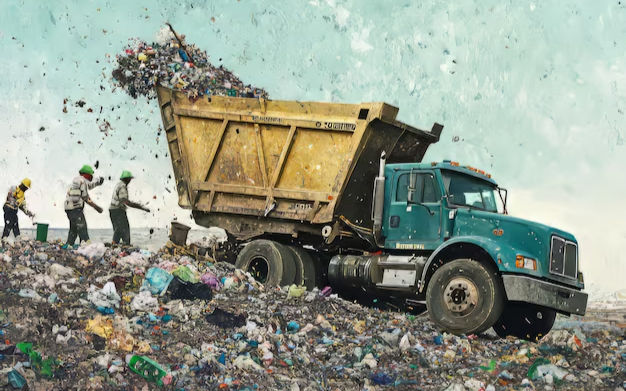Is a Garbage Truck Business Profitable in Small Towns?
- Nate Jones, CPCU, ARM, CLCS, AU

- Sep 22, 2025
- 3 min read
When people think of profitable businesses, garbage truck companies might not be the first to come to mind. However, waste management is an essential service, and in small towns across the United States, starting a garbage truck business can be both lucrative and rewarding. Let’s explore the factors that influence profitability, the challenges you might face, and why having the right business insurance is crucial for your success.

Why Small Towns Need Garbage Truck Companies
Small towns rely on dependable waste collection to keep their communities clean and healthy. Unlike large cities with municipal waste services, many small towns contract private garbage truck companies to handle their trash removal. This creates a steady demand for reliable operators who can offer consistent, affordable, and efficient service.
Key Factors That Influence Profitability
1. Lower Competition:
In small towns, there are often fewer waste management providers. This means less competition and a greater chance to secure long-term contracts with local governments, businesses, and residents.
2. Steady Demand:
Garbage collection is a recurring need. Once you establish a route, you can count on regular income from weekly or bi-weekly pickups. Many contracts are renewed annually, providing financial stability.
3. Manageable Overhead:
Operating in a small town usually means lower costs for fuel, labor, and equipment storage. Routes are shorter, and there’s less traffic, which reduces wear and tear on your trucks.
4. Community Relationships:
Small towns value personal relationships. Building trust with local customers can lead to word-of-mouth referrals and long-term loyalty.
Challenges to Consider
While the potential for profit is strong, there are challenges to be aware of:
Initial Investment: Purchasing or leasing garbage trucks and equipment can be costly.
Regulatory Compliance: You must comply with local, state, and federal regulations for waste disposal and vehicle operation.
Insurance Requirements: Garbage truck companies face unique risks, from accidents to property damage. Comprehensive business insurance is not just recommended—it’s often required by law or contract.
The Importance of Business Insurance
Whether you’re operating a single truck or managing a fleet, having the right insurance coverage protects your business from unexpected losses. Wexford Insurance specializes in providing tailored insurance solutions for garbage truck companies and other transportation-related businesses nationwide. Wexford Insurance offers specialized coverage options tailored for garbage truck companies, including:
This is required by law and covers bodily injury and property damage if your truck is involved in an accident.
Physical Damage Coverage:
Protects your garbage trucks against damage from collisions, theft, vandalism, or natural disasters.
Workers’ Compensation Insurance:
Provides coverage for medical expenses and lost wages if your employees are injured on the job.
General Liability Insurance:
Covers claims of bodily injury or property damage that occur during your business operations, such as accidents on a customer’s property.
While garbage isn’t a traditional “cargo,” this coverage can protect you if you transport recyclable materials or other valuable loads.
Trailer Interchange Insurance:
If you use or exchange trailers with other companies, this coverage protects against physical damage to non-owned trailers.
Conclusion
Starting a garbage truck business in a small town can be profitable if you understand the market, manage your costs, and protect your investment with the right insurance. With steady demand and less competition, small towns offer a unique opportunity for entrepreneurs ready to roll up their sleeves and serve their communities. Contact Wexford Insurance now!




